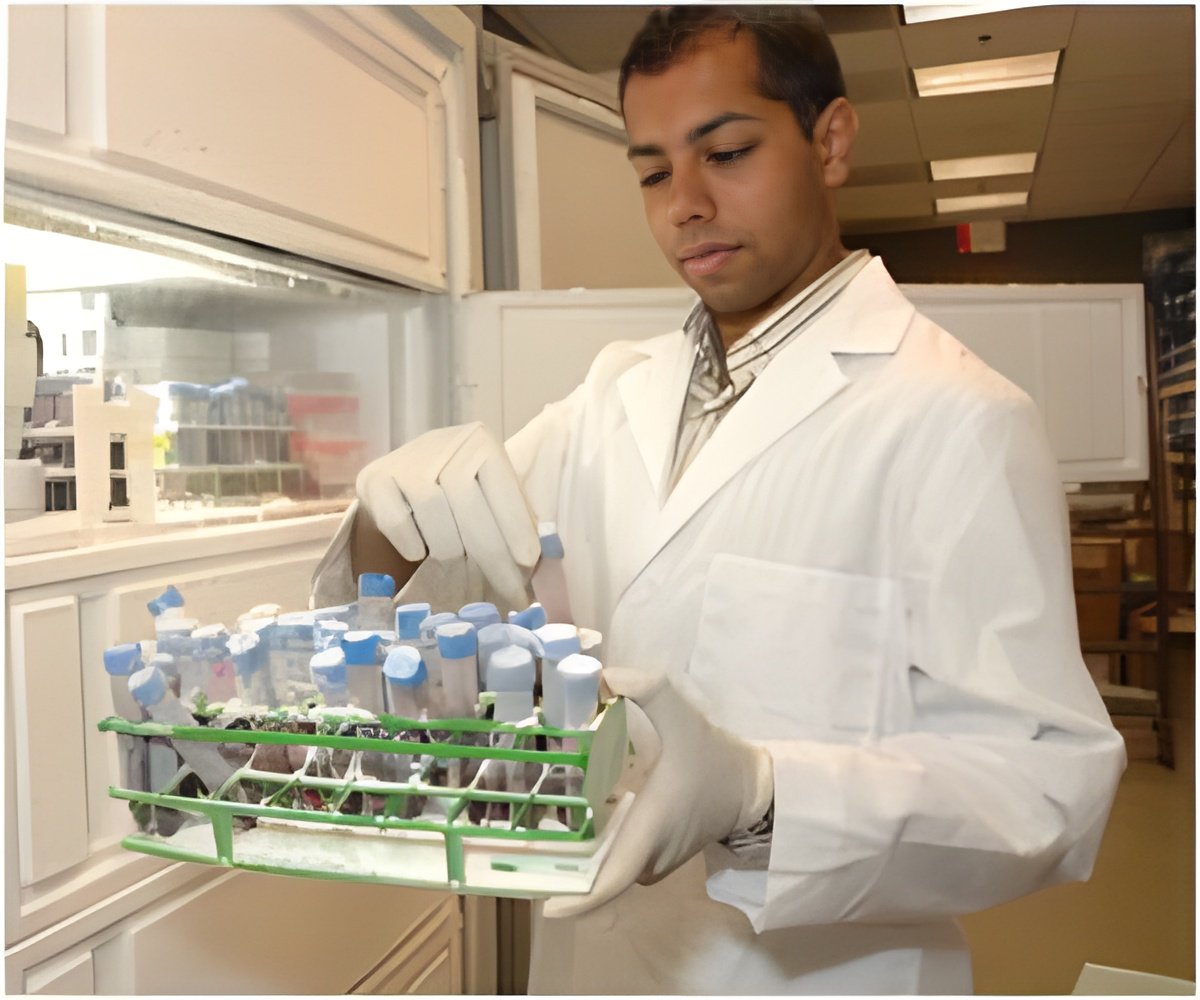Researchers at the Buck Institute have discovered a link between ApoE4, the cholesterol-carrying protein and a major genetic risk factor for Alzheimer's disease, and SirT1.

The Buck group also found that the abnormalities associated with ApoE4 and AD, such as the creation of phospho-tau and amyloid-beta, could be prevented by increasing SirT1. They have identified drug candidates that exert the same effect. "This research offers a new type of screen for Alzheimer's prevention and treatment," said Rammohan V. Rao, PhD, co-author of the study, and an Associate Research Professor at the Buck, "One of our goals is to identify a safe, non-toxic treatment that could be given to anyone who carries the ApoE4 gene to prevent the development of AD."
In particular, the researchers discovered that the reduction in SirT1 was associated with a change in the way the amyloid precursor protein (APP) is processed. Rao said that ApoE4 favored the formation of the amyloid-beta peptide that is associated with the sticky plaques that are one of the hallmarks of the disease. He said with ApoE3 (which confers no increased risk of AD), there was a higher ratio of the anti-Alzheimer's peptide, sAPP alpha, produced, in comparison to the pro-Alzheimer's amyloid-beta peptide. This finding fits very well with the reduction in SirT1, since overexpressing SirT1 has previously been shown to increase ADAM10, the protease that cleaves APP to produce sAPP alpha and prevent amyloid-beta.
AD affects over 5 million Americans – there are no treatments that are known to cure, or even halt the progression of symptoms that include loss of memory and language. Preventive treatments are particularly needed for the 2.5% of the population that carry two genes for ApoE4, which puts them at an approximate 10-fold higher risk of developing AD, as well as for the 25% of the population with a single copy of the gene. The group hopes that the current work will identify simple, safe therapeutics that can be given to ApoE4 carriers to prevent the development of Alzheimer's disease.
Source-Eurekalert













